-
 Bitcoin
Bitcoin $116700
0.24% -
 Ethereum
Ethereum $3973
4.34% -
 XRP
XRP $3.283
7.68% -
 Tether USDt
Tether USDt $1.000
0.01% -
 BNB
BNB $789.8
2.27% -
 Solana
Solana $176.2
3.31% -
 USDC
USDC $0.9999
0.00% -
 Dogecoin
Dogecoin $0.2238
5.14% -
 TRON
TRON $0.3389
-0.51% -
 Cardano
Cardano $0.7907
4.03% -
 Stellar
Stellar $0.4527
10.02% -
 Hyperliquid
Hyperliquid $41.07
4.27% -
 Sui
Sui $3.794
1.77% -
 Chainlink
Chainlink $19.49
10.40% -
 Bitcoin Cash
Bitcoin Cash $580.9
0.74% -
 Hedera
Hedera $0.2617
4.32% -
 Avalanche
Avalanche $23.41
3.67% -
 Ethena USDe
Ethena USDe $1.001
-0.03% -
 Litecoin
Litecoin $122.4
1.38% -
 Toncoin
Toncoin $3.364
1.49% -
 UNUS SED LEO
UNUS SED LEO $8.988
0.37% -
 Shiba Inu
Shiba Inu $0.00001295
2.82% -
 Uniswap
Uniswap $10.62
5.75% -
 Polkadot
Polkadot $3.922
4.46% -
 Dai
Dai $1.000
0.01% -
 Bitget Token
Bitget Token $4.494
2.15% -
 Monero
Monero $268.0
-1.30% -
 Cronos
Cronos $0.1523
3.68% -
 Pepe
Pepe $0.00001127
4.43% -
 Aave
Aave $285.4
4.85%
What is Ethereum smart contract
Ethereum smart contracts, autonomous and immutable programs stored on the blockchain, revolutionize trust, negotiation, and automation in various blockchain applications, from DeFi to supply chain management.
Nov 09, 2024 at 02:59 am
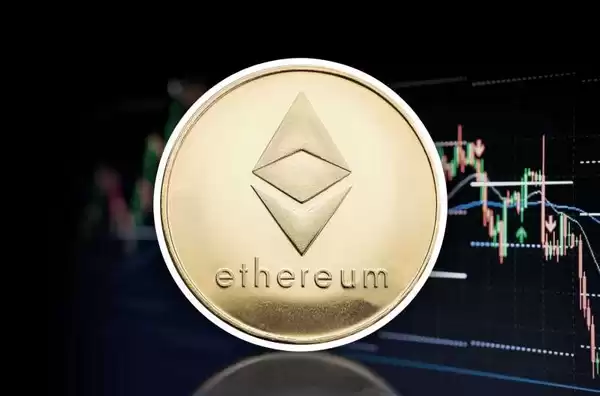
Ethereum Smart Contracts: A Comprehensive Guide
Ethereum smart contracts are self-executing programs stored on the Ethereum blockchain. They are autonomous, transparent, and immutable. Designed to reduce trust and simplify negotiations, smart contracts play a pivotal role in various blockchain applications.
Key Features of Ethereum Smart Contracts:
- Autonomous Execution: Smart contracts are autonomous programs that execute automatically when predefined conditions are met. This eliminates the need for manual intervention and reduces the risk of human error.
- Transparency: All smart contract code is open and auditable. This promotes trust and transparency among participants.
- Immutability: Once deployed on the blockchain, smart contracts cannot be altered or removed. This ensures the integrity and security of the contract's execution.
Working Mechanism of Ethereum Smart Contracts
- Contract Creation: A smart contract is designed and coded in Solidity, a programming language specifically developed for Ethereum. It then goes through a compilation process to convert Solidity code into EVM bytecode understandable by the Ethereum Virtual Machine (EVM).
- Deployment: The compiled contract is deployed onto the Ethereum network, and a unique address is generated for it. This address serves as the contract's public identifier on the blockchain.
- Initialization: The deployment transaction typically includes an initialization function that sets up initial contract parameters and states. This function is executed only once during the contract's lifetime.
- Transaction Execution: Parties interact with smart contracts by sending transactions to their addresses. These transactions trigger the execution of functions defined within the contract code.
- State Update: If the transaction meets the conditions specified in the contract code, the contract's state may be updated. The new state is recorded on the blockchain and becomes accessible to all participants.
Benefits of Using Ethereum Smart Contracts
- Automation: Smart contracts automate various processes, reducing the need for intermediaries and manual effort. This saves time, costs, and reduces the risk of errors.
- Transparency and Trust: The open and auditable nature of smart contracts builds trust among parties, since all actions are recorded on the blockchain and visible to all.
- Enhanced Security: Smart contracts operate on the secure Ethereum blockchain, leveraging its decentralized architecture and consensus mechanisms to ensure data integrity and prevent unauthorized modifications.
- Reduced Costs: By eliminating the need for intermediaries and simplifying business processes, smart contracts can significantly reduce transaction and operating expenses.
- New Application Possibilities: Smart contracts enable the creation of innovative applications that were previously impossible or impractical with traditional systems. This opens up new possibilities for business models and industry transformations.
Common Use Cases of Ethereum Smart Contracts
- Digital Agreements: Smart contracts can be used to create legally binding agreements, such as contracts for sale, insurance policies, or loan agreements. These contracts execute automatically based on pre-defined terms, reducing the need for complex legal documentation.
- Decentralized Finance (DeFi): Smart contracts are the foundation of DeFi, allowing for the creation of decentralized financial instruments and services, such as lending, borrowing, stablecoins, and decentralized exchanges.
- Supply Chain Management: Smart contracts can track the provenance and movement of goods through supply chains, ensuring transparency and accountability. They can also automate payments, streamline logistics, and reduce fraud.
- Voting and Elections: Smart contracts can facilitate secure and transparent voting systems, allowing for the casting and counting of votes on the blockchain. This reduces the risk of election fraud and eliminates the need for centralized authorities.
- Gaming and Entertainment: Smart contracts can be used in gaming applications to manage in-game assets, distribute rewards, and enforce game rules. In the entertainment industry, smart contracts can automate royalty payments and provide new ways for content creators to monetize their work.
Top Smart Contract Development Platforms (Excluding FTX)
- Ethereum: Ethereum is the leading platform for smart contract development, with a vast ecosystem of tools, resources, and an active community.
- Binance Smart Chain (BSC): BSC offers a high-throughput alternative to Ethereum, with faster transaction speeds and lower gas fees.
- Solana: Solana is a high-performance blockchain that supports smart contracts with unparalleled scalability and low transaction costs.
- Polygon: Polygon is a layer-2 scaling solution for Ethereum, providing faster transactions and lower gas fees, while maintaining interoperability with the Ethereum ecosystem.
- Avalanche: Avalanche is another high-throughput blockchain that offers fast and low-cost transactions for smart contract applications.
Considerations for Developing Smart Contracts
- Security: Smart contracts should be thoroughly audited and tested to ensure they are secure against vulnerabilities and exploits.
- Cost Optimization: Developers should optimize smart contract code to minimize gas consumption and reduce transaction fees.
- Maintenance and Upgrades: Smart contracts should be designed with future maintenance and upgrades in mind, as code changes on the blockchain can be complex and costly.
- Legal and Regulatory Compliance: It is essential to consider the legal and regulatory implications of smart contracts, particularly in jurisdictions where digital agreements may not yet have clear legal standing.
- User Experience: Smart contract user interfaces and interactions should be designed with user-friendliness and simplicity in mind, ensuring a seamless and accessible experience for all participants.
Disclaimer:info@kdj.com
The information provided is not trading advice. kdj.com does not assume any responsibility for any investments made based on the information provided in this article. Cryptocurrencies are highly volatile and it is highly recommended that you invest with caution after thorough research!
If you believe that the content used on this website infringes your copyright, please contact us immediately (info@kdj.com) and we will delete it promptly.
- Bitcoin, Litecoin, and Avalanche: Decoding the Crypto Buzz in the Big Apple
- 2025-08-09 00:30:12
- Pengu Takes Flight: Can This Solana Meme Coin Conquer the Top 3?
- 2025-08-09 00:50:13
- Ethereum and Shiba Inu: Navigating the Bull Move
- 2025-08-09 00:35:12
- Navigating the Crypto Market in 2025: Smart Decisions for Meme Coin Investing
- 2025-08-09 00:55:55
- Punisher Coin: The Altcoin Ready to Punish Your Portfolio with Gains?
- 2025-08-08 22:50:16
- Mutuum Finance, Bitcoin Whales, and Binance: Decoding the Crypto Currents
- 2025-08-08 22:30:11
Related knowledge
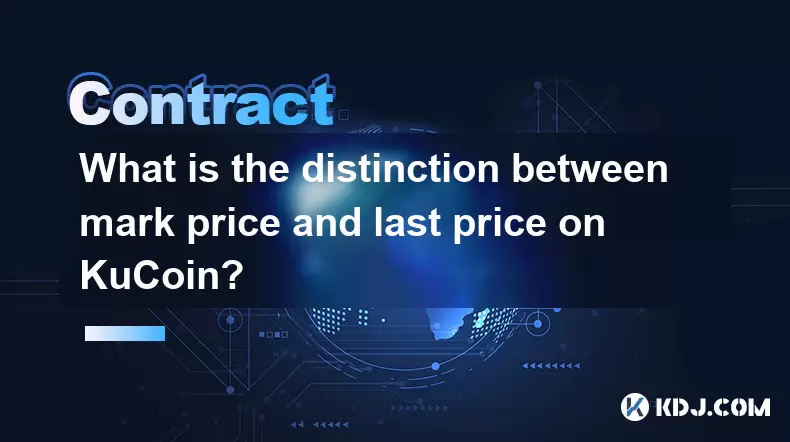
What is the distinction between mark price and last price on KuCoin?
Aug 08,2025 at 01:58pm
Understanding the Basics of Price in Cryptocurrency TradingIn cryptocurrency exchanges like KuCoin, two key price indicators frequently appear on trad...
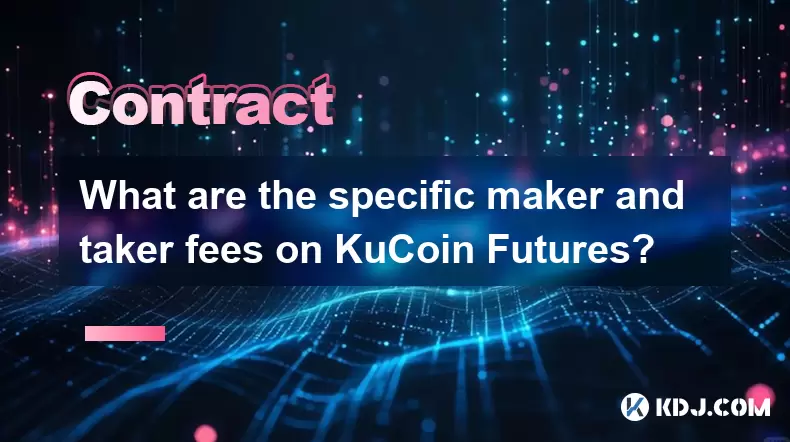
What are the specific maker and taker fees on KuCoin Futures?
Aug 08,2025 at 08:28am
Understanding Maker and Taker Fees on KuCoin FuturesWhen trading on KuCoin Futures, users encounter two primary types of fees: maker fees and taker fe...
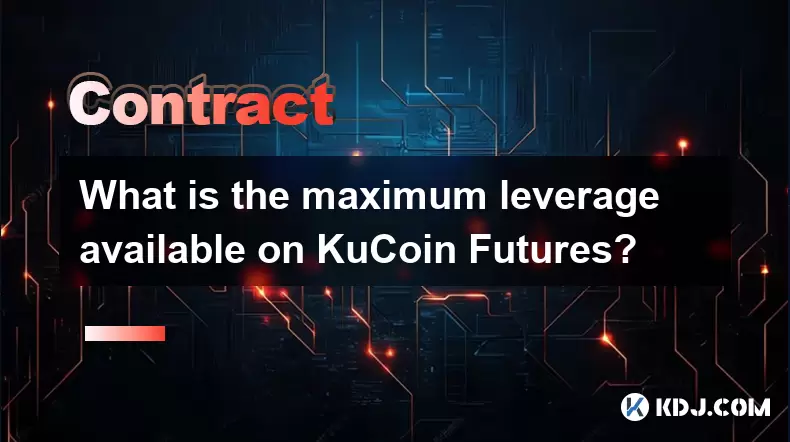
What is the maximum leverage available on KuCoin Futures?
Aug 08,2025 at 10:21am
Understanding Leverage in KuCoin Futures TradingLeverage in KuCoin Futures allows traders to control a larger position size using a smaller amount of ...
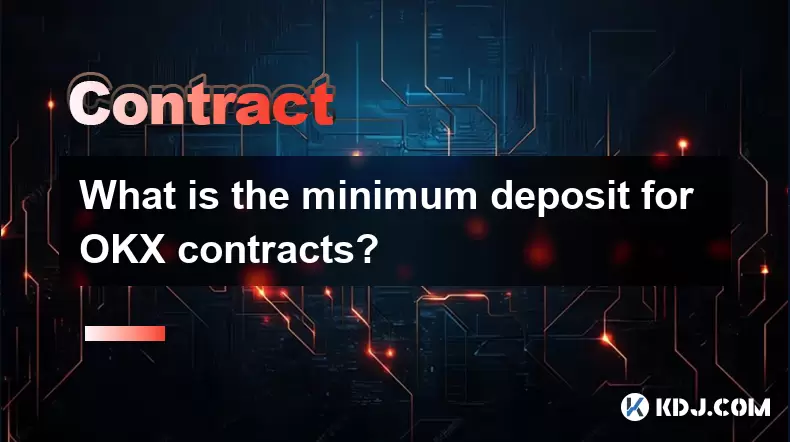
What is the minimum deposit for OKX contracts?
Aug 08,2025 at 07:00am
Understanding OKX Contract Trading BasicsOKX is one of the leading cryptocurrency derivatives exchanges, offering a wide range of perpetual and future...
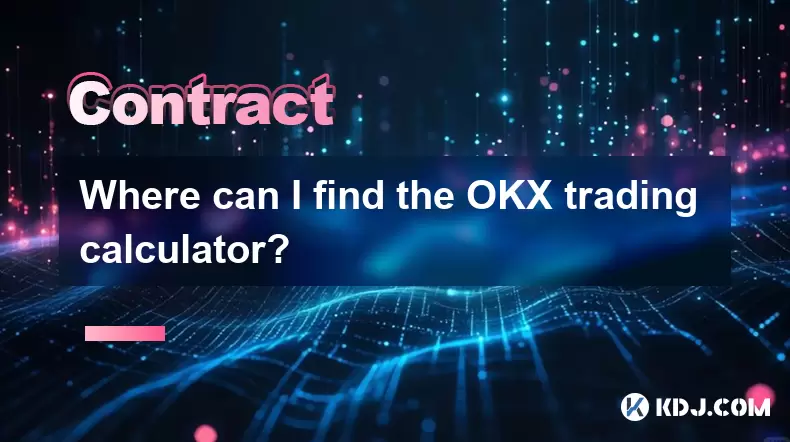
Where can I find the OKX trading calculator?
Aug 08,2025 at 07:49am
Understanding the OKX Trading Calculator FunctionalityThe OKX trading calculator is a powerful analytical tool designed to assist traders in estimatin...
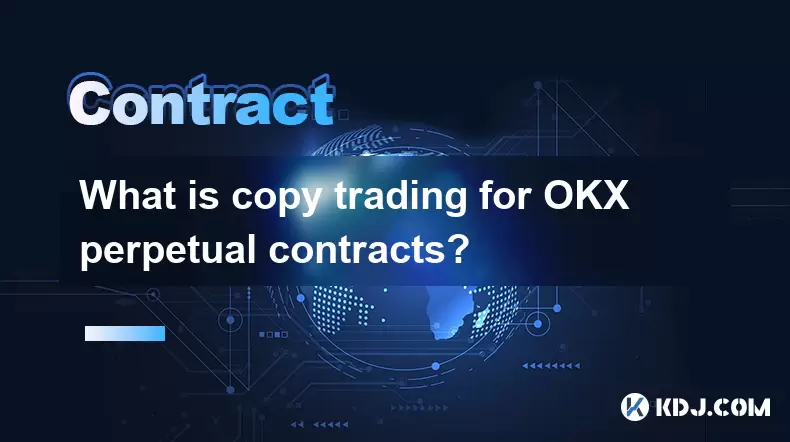
What is copy trading for OKX perpetual contracts?
Aug 08,2025 at 10:42pm
Understanding Copy Trading in the Context of OKX Perpetual ContractsCopy trading is a feature offered by the OKX exchange that enables users to automa...

What is the distinction between mark price and last price on KuCoin?
Aug 08,2025 at 01:58pm
Understanding the Basics of Price in Cryptocurrency TradingIn cryptocurrency exchanges like KuCoin, two key price indicators frequently appear on trad...

What are the specific maker and taker fees on KuCoin Futures?
Aug 08,2025 at 08:28am
Understanding Maker and Taker Fees on KuCoin FuturesWhen trading on KuCoin Futures, users encounter two primary types of fees: maker fees and taker fe...

What is the maximum leverage available on KuCoin Futures?
Aug 08,2025 at 10:21am
Understanding Leverage in KuCoin Futures TradingLeverage in KuCoin Futures allows traders to control a larger position size using a smaller amount of ...

What is the minimum deposit for OKX contracts?
Aug 08,2025 at 07:00am
Understanding OKX Contract Trading BasicsOKX is one of the leading cryptocurrency derivatives exchanges, offering a wide range of perpetual and future...

Where can I find the OKX trading calculator?
Aug 08,2025 at 07:49am
Understanding the OKX Trading Calculator FunctionalityThe OKX trading calculator is a powerful analytical tool designed to assist traders in estimatin...

What is copy trading for OKX perpetual contracts?
Aug 08,2025 at 10:42pm
Understanding Copy Trading in the Context of OKX Perpetual ContractsCopy trading is a feature offered by the OKX exchange that enables users to automa...
See all articles

























































































